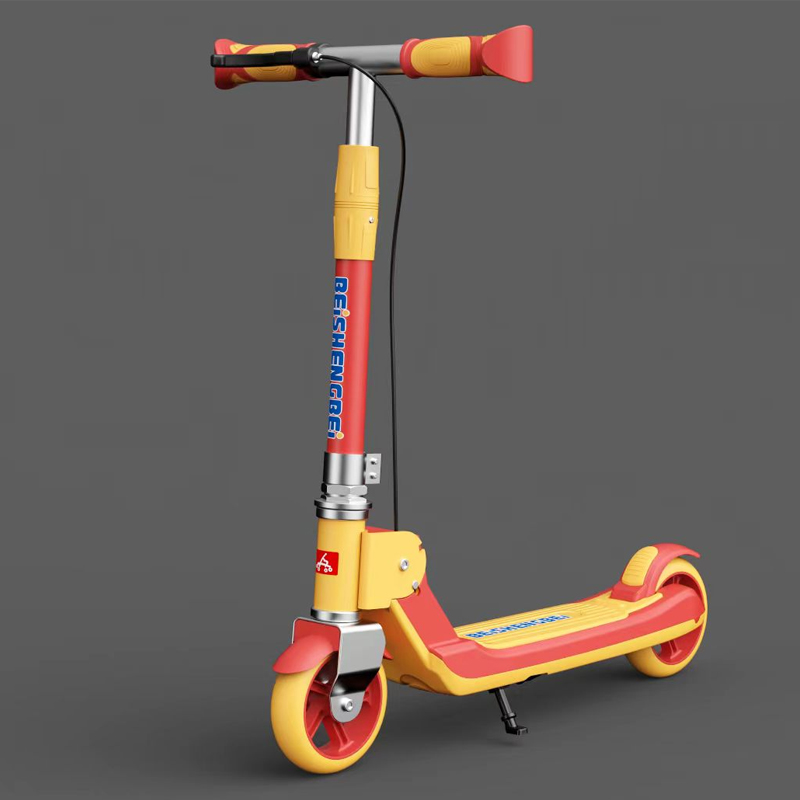Understanding Sulfur Smell from Kids' Electric Scooters When Charging
Electric scooters have become increasingly popular among children, offering a fun and convenient way to traverse neighborhoods. However, parents might sometimes notice an unusual sulfur smell when charging these devices. This phenomenon can be concerning, prompting questions about safety and potential causes. In this article, we will explore the reasons behind this sulfur-like odor and what it means for the safety of electric scooters.
The Source of the Smell
The sulfur smell often emanates from the battery. Most kids' electric scooters operate on lead-acid or lithium-ion batteries. During charging, especially if the battery is old, damaged, or overcharged, it can produce a variety of gases, including hydrogen sulfide. This gas has a characteristic rotten egg odor, which is frequently perceived as a sulfur-like smell.
Battery Degradation and Overcharging
When a battery is charged correctly, it should not emit any significant odor. However, several factors during the charging process can lead to the production of this unpleasant smell. One common cause is overcharging. If a battery continues to receive power after it is fully charged, it can lead to overheating and electrolyte breakdown. This process can result in gas release that may have a sulfuric scent. Overcharging is particularly common if the charger is left connected for too long or if the device uses a faulty charger.
Additionally, as batteries age, their ability to hold a charge diminishes. Older batteries may undergo chemical reactions that create unusual smells. It is crucial to monitor the age of the battery and replace it as necessary. Most batteries will have a lifespan of 1-3 years, depending on usage and care.
can a kids electric scooter smell of sulfur when charging

Maintenance and Safety Measures
To ensure the safety of your child while using an electric scooter, it's important to adhere to maintenance guidelines. First, always use the charger that comes with the scooter or a manufacturer-approved substitute. Third-party chargers might not measure the power output correctly and can lead to overcharging.
Moreover, try to charge the scooter in a well-ventilated area. If you detect a sulfur smell, discontinue charging and allow the scooter to cool down. Never ignore unusual smells, as they could be indicative of a more serious battery issue, including the risk of fire or explosion.
Regular maintenance also involves checking the battery regularly for signs of damage, such as swelling, leaks, or corrosion. If any of these issues are present, it is vital to replace the battery immediately to avoid potential hazards.
Conclusion
While a sulfur smell from a kids' electric scooter when charging can be alarming, understanding the causes can help alleviate concerns. Overcharging, battery degradation, and the use of non-standard chargers are common culprits behind this odor. By practicing good maintenance and safety measures, parents can ensure that the electric scooter remains a safe and enjoyable way for their children to explore.
Always remember, if in doubt about the condition of the scooter or its battery, consult with a professional or the manufacturer. Ensuring the safety of your child is paramount, and timely action can prevent potential issues associated with electric scooter battery problems.
-

 Scoot&RideKids Child Kick Push Scooter 3 Wheels with LED Flashing Tilt Lean Boys Girls Scooter
Scoot&RideKids Child Kick Push Scooter 3 Wheels with LED Flashing Tilt Lean Boys Girls Scooter




- 4
$33.17 -

 Scoot&RideKids Scooter Child Kick Flashing LED Light Up 3 Wheel Push Adjustable Folding 3
Scoot&RideKids Scooter Child Kick Flashing LED Light Up 3 Wheel Push Adjustable Folding 3- 0
$25.52 -

 Scoot&RideKids Scooter Child Kick Flashing LED Light Up 3 Wheel Push Adjustable Folding 2
Scoot&RideKids Scooter Child Kick Flashing LED Light Up 3 Wheel Push Adjustable Folding 2- 0
$33.17 -

 Scoot&RideKids Scooter Teens Foldable Kick Push Scooter Adjustable Height Safe 2 Wheels
Scoot&RideKids Scooter Teens Foldable Kick Push Scooter Adjustable Height Safe 2 Wheels




- 4
$49.99
Meet our partners and discover what powers their creativity!
When you register for a Lohas scooter, you will receive a 10% discount on your first order and can be notified of sales, new product launches and other offers in advance.









